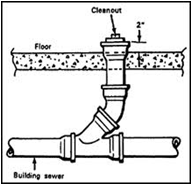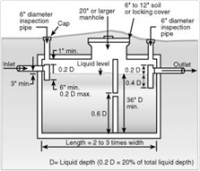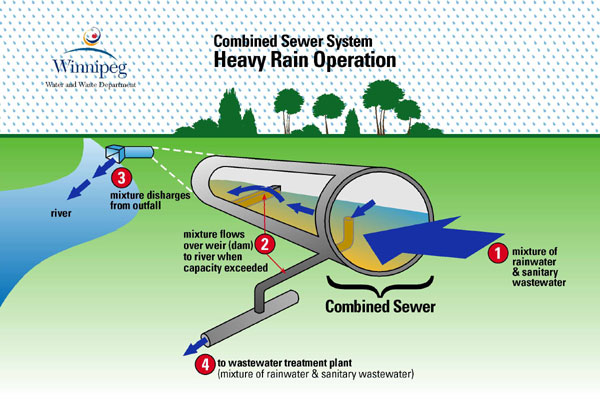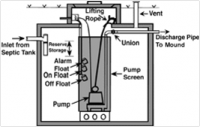Practitioner's Tool / Sewers Comparison
From Akvopedia
| Sewers |
Appropriate Use |
Relative Cost |
Operations and Maintenance |
Effectiveness |
| To transport wastewater from buildings to the treatment system |
Generally low but can increase based on length of pipes, soils, and topography. Cost can be minimized by placing treatment as close to buildings as possible |
Low for gravity sewers Moderate for pressurized systems |
High - Effective when designed and installed properly | |
| Small to moderately-sized communities. Uses smaller pipes and can accommodate variable flows |
Moderate for the sewer pipes High when considering the cost of septic or settling tanks at each building. |
Low for the sewers High for the septic tanks when considering the required desludging. |
High when community programs for desludging are provided | |
| Small to medium-sized communities |
Low - Allows sharing of sewer laterals, which reduces cost |
Low when communities are responsible for maintaining their own laterals, as they are more careful to operate properly |
High when strong community participation and bottom-up planning is provided | |
| Larger communities |
Moderate – groundwater, poor soils and variable slopes increase costs |
Low - Periodic declogging is generally required |
Moderate – Generally effective at moving waste away from population centers | |
| When variable slopes or distances will not allow gravity systems |
High - Pump tanks, pump equipment, and the cost of electricity adds to cost |
Moderate - Pump systems are generally reliable, but trash traps and screens often require continuous maintenance |
High - When installed and operated properly |
[[Practitioner's Tool / Technology and Operation|Back to Technology and Operation]





